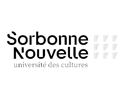The CREDA Scientific Objectives
The CREDA scientific project is a clear answer to the general renewal of research areas that has characterised the international research scenario (see for instance the German networks of excellence, e.g. GIGA in Hamburg, or the Institute for the Study of the Americas at the London University). It also responds to the need to enable what some scholars refer to as “the coming back of geography”, in terms of the importance of social configurations spatially identified that can only be thus appreciated, vis-à-vis the loss of momentum of the “meta narratives”.
At the same time, the blurring of boundaries – be it about the divisions “North/South” or national frontiers – demands a transnational perspective, whilst “multi-located approaches “ and comparisons become indispensable and must be conducted in partnership with international researchers. The emphasis of CREDA on an international approach, translates into researching American societies from within, by often privileging the micro viewpoint in their historic tradition and trans-boundary dimension (e.g; migrations) .
The strict link with the Americas further eases multidisciplinary approaches and the challenging dialogue between social and human sciences on one end, and natural sciences on the other. It is in this light that CREDA’s quest for excellence in all its subject areas - geography, history, economics, political sciences, anthropology and sociology - must be seen.
The unwavering focus of our research on the Americas makes the CREDA an information and knowledge reference for representatives of the civil society as well as of the political and private sectors. This reference role is continually nurtured thanks in particular to our new web-site, the steady improvement of our Monbeig Library and the on-going digitalisation of the IHEAL/CREDA publications.
The CREDA has a slender structure and privileges working in network.
It’s symbiotic relation with the University Sorbonne Nouvelle-Paris 3/IHEAL facilitates the connection between our researchers and teaching programmes - particularly, our Masters -.
Conversely, the CREDA offers our PhD and Master students the opportunity to take part in different research programmes, particularly via undertaking specific internships.
Grouped per themes, rather than per subject area, CREDA researchers and PhD candidates work on common issues following a multidisciplinary approach.
Building knowledge in prospective PhDs is essential as we aim at preparing them to various professional paths, beyond doing research in public institutions. Our PhD programme is thus conceived as a genuine learning experience fostering PhD students’ participation in projects and assisting them to develop research initiatives.





